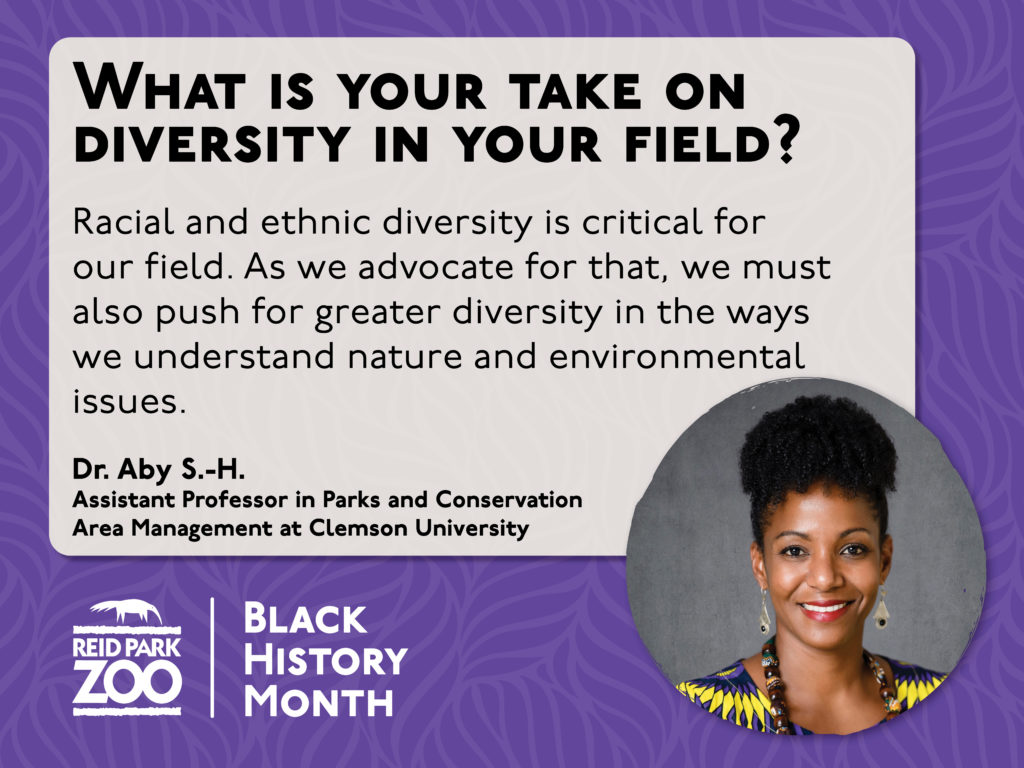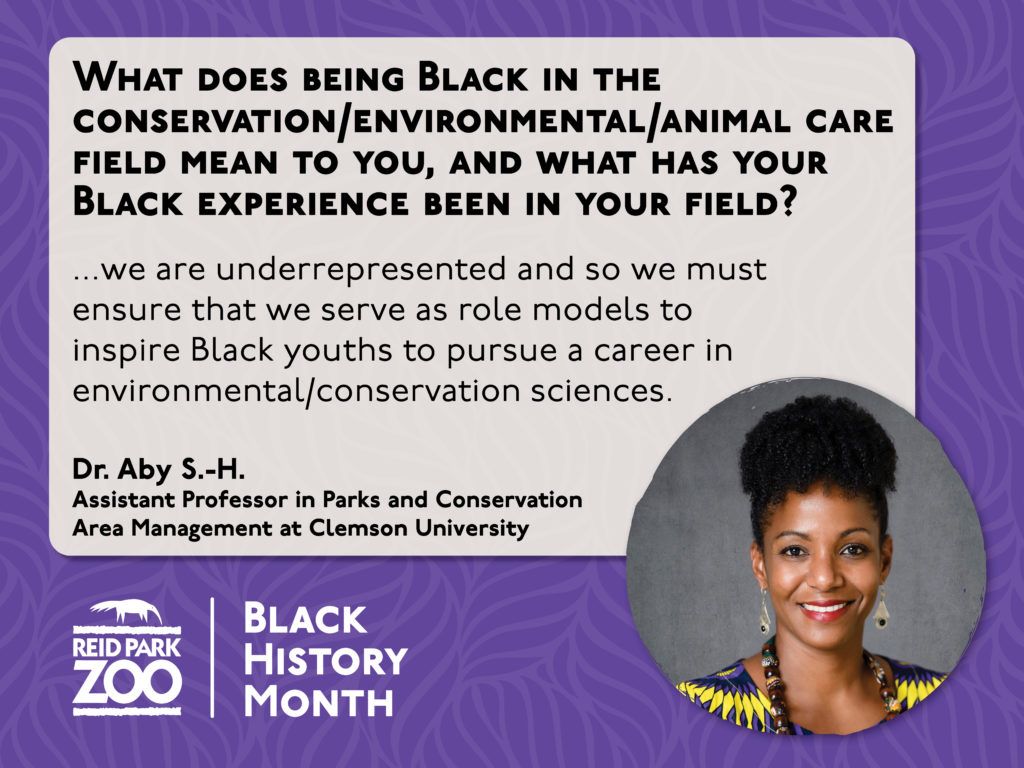Black in Nature: Featuring Dr. Aby Sene-Harper

This post is part of “Black in Nature: Tackling Diversity in Conservation,” a Black History Month series giving Black people who work in animal care and conservation a platform to share their experiences and spark the conversation necessary for change. Learn more here.
Dr. Aby Sene-Harper is an assistant professor in the Parks and Conservation Area Management department at Clemson University. She has dedicated her life to researching African American culture and history and how it has affected Black Americans’ relationship with nature. She believes that it is a “tremendous responsibility” to be Black in the environmental studies field.
“First, because we are underrepresented and so we must ensure that we serve as role models to inspire Black youths to pursue a career in environmental/conservation sciences. Second, the prevailing environmental racism in the US has disproportionately targeted Black communities to be exposed to environmental hazards and have limited (to no) access to green spaces and public lands. To me this has been a motivating factor to be in this field to restore environmental justice in service of Black communities.”
Although she is highly motivated by her sense of responsibility, Dr. Sene-Harper believes that the very fact that the importance of diversity, in conservation, is still being questioned , shows that we still have a long way to go. “Racial and ethnic diversity is critical for our field. As we advocate for that, we must also push for greater diversity in the ways we understand nature and environmental issues.”
The ways in which we learn about nature and its occupants can also have an affect on how marginalized groups interact with their environment. “We must be open to welcoming different forms of knowledge even those that fall outside of the scientific realms. This is so important for Blacks and Indigenous communities who have different values and beliefs systems rooted in their lived experiences, that shape their relationship with nature and non-human species.”
Along with her commitment to understanding the relationship between marginalized groups and nature, Dr. Sene-Harper is also committed to management and protection of wild places. When asked what was the largest plight against wild places and animals she replied, “The singular and most important challenge today in biodiversity conservation and environmental justice is climate change. To me there is no other more pressing issue than that.”

